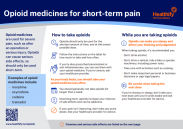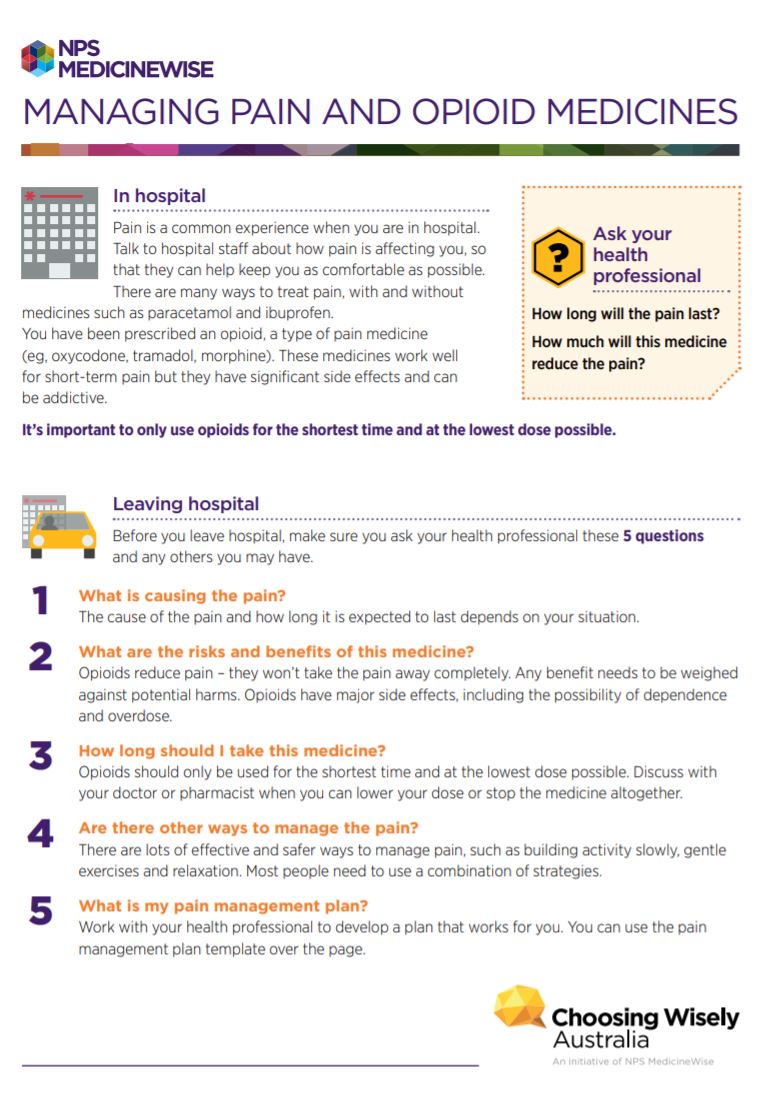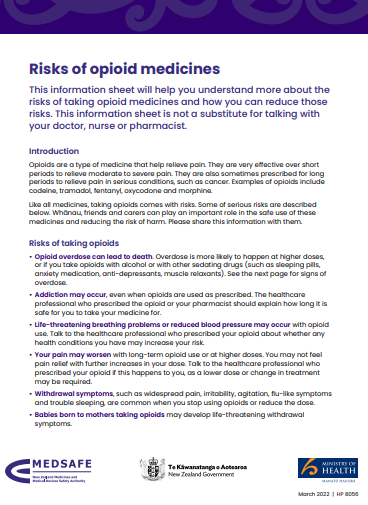Codeine is used for the relief of moderately severe pain, such as after an injury or operation. It's usually used when milder pain relief such as paracetamol or non-steroidal anti-inflammatories (NSAIDs) don’t work well enough.
Codeine belongs to a group of medicines called opioid painkillers. They act on your brain and nervous system to lessen the way you feel pain. Other pain relievers such as paracetamol and NSAIDs (ibuprofen, diclofenac, naproxen) may also be used with codeine. Read more about pain, pain-relief medication and opioid painkillers.
Codeine can also be used to treat dry cough and diarrhoea.
Use in children and adolescents
New Zealand's Medsafe, a unit of the Ministry of Health, has assessed the safety and effectiveness of codeine in children and adolescents. Codeine can cause serious breathing problems in children that could result in death.
- Medsafe has advised that codeine should not be used in children younger than 12 years.
- In adolescents aged 12–18 years, codeine should not be used for pain after surgery to remove tonsils or adenoids, for relief of cough, or in people who have breathing problems.
Codeine is also called:
- Codeine Phosphate®
- Panadeine
- Panadeine Extra
- Panadeine Plus
- Ibucode Plus®
- Nurofen Plus®
- Panafen Plus®
All codeine-containing medicines are only available on a prescription from your doctor. Read more about codeine re-classification(external link).









